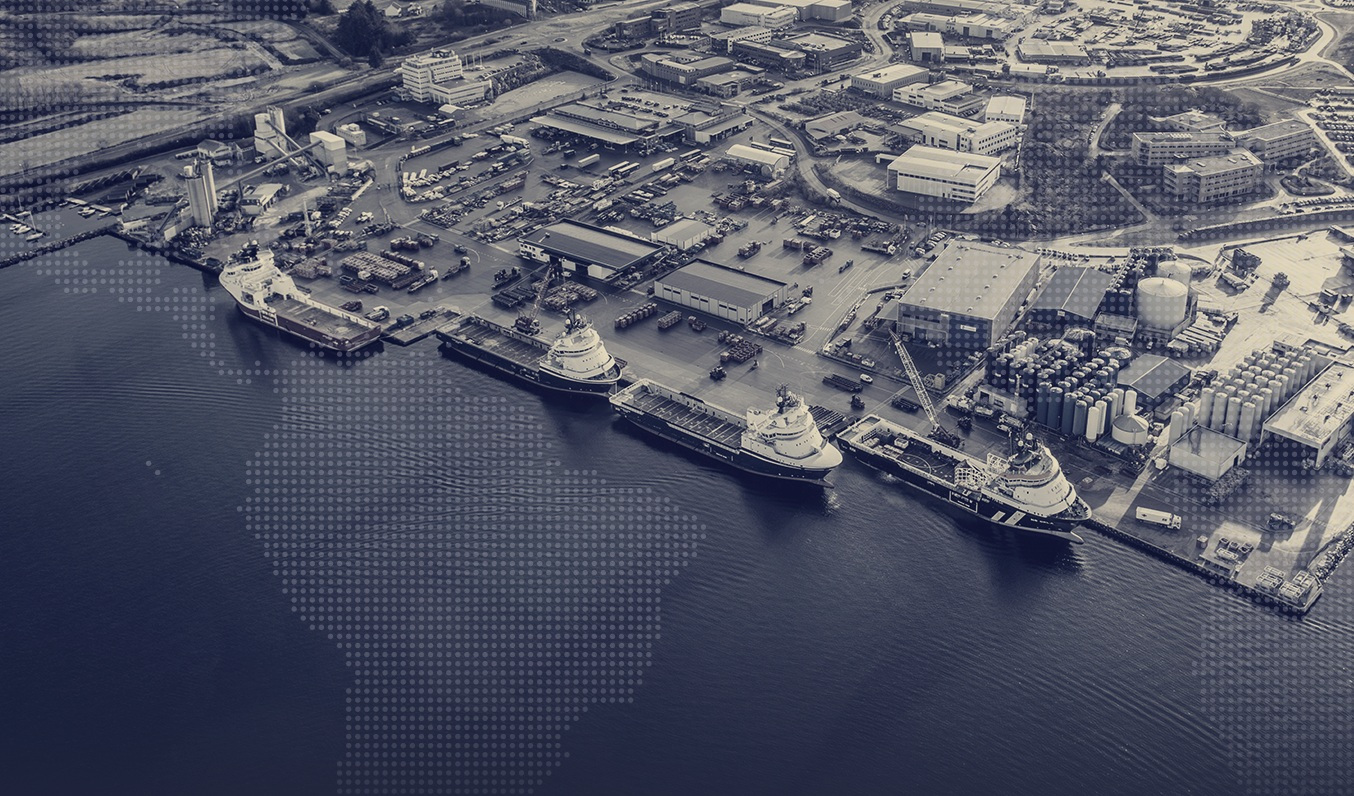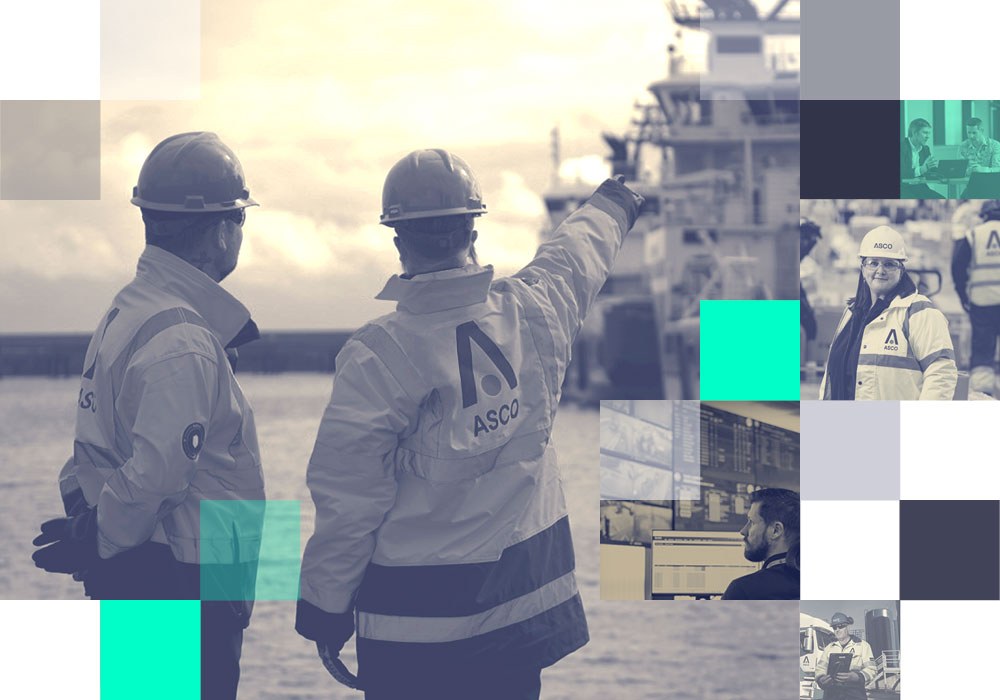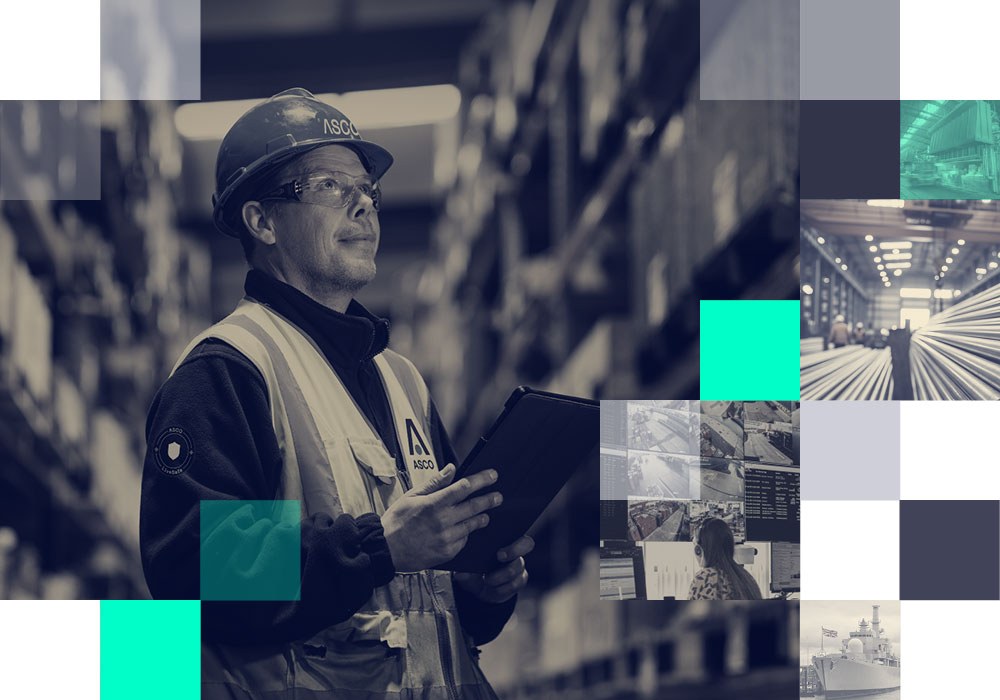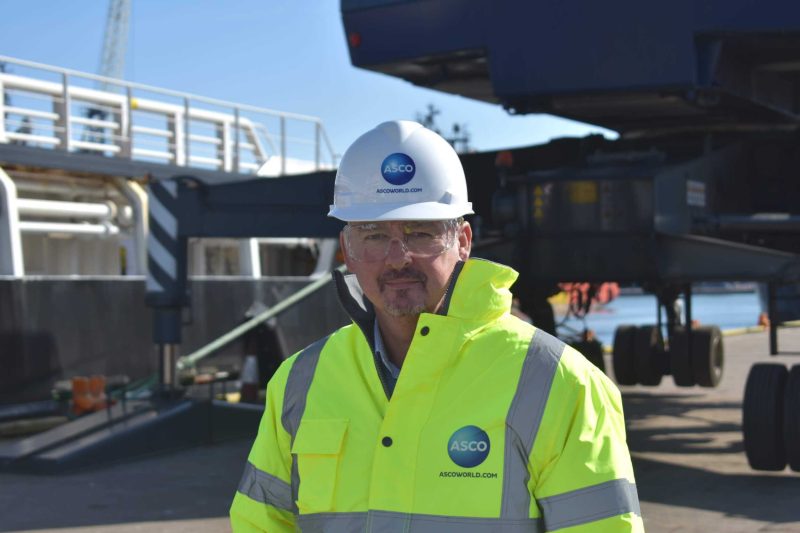As many of you reading this will know, ASCO operates under two fundamental obsessions – Safety and Service excellence. However, as of last month, we added a third obsession, Sustainability.
That might not come as a huge surprise to you. As a topic, sustainability appears at the head of almost every agenda in this industry; the main questions being “how do we transition to a Net Zero culture, how long will it take and how will it impact my business?”
Of course, every company has an environment impact, but this is a subject which is close to our hearts - especially as a business which has logistics and materials management at our core. We've been working to mitigate our environmental impact for a considerable length of time, and yet despite this, we know that creating a formal policy around that activity and planning our route to Net Zero 2040 is no mean feat. This month sees the launch of ASCO’s Environmental Management Policy, and it therefore seems a good time to share some of our experiences and insight.
Dealing with the “Unknown”
Our aim is to drive improvements in everything that is directly within ASCO’s control on a global scale, whilst encouraging and influencing our clients and suppliers to do the same.
A genuinely effective environmental policy, guaranteed to drive change, contains so much more than a list of future objectives. Setting challenging environmental performance targets will drive us towards our goal, but our policy also articulates how to deliver and accurately measure the impact of our actions. To ensure we’re effective in this, we have worked closely with Aberdeen-based climate change experts, Goal7 (named after the UN Sustainable Development Goal for Clean and Affordable Energy).
We acknowledge that creating an effective environmental management policy can be difficult. There are still a lot of “unknowns” around the means by which industry can achieve Net Zero status. For example, which clean energy product will be the one most popularly adopted and therefore wisest to invest in? Smart choices involve keeping an ear to the ground, significant research and a finger on the pulse of current activity.
Technology to assist us in achieving our environmental goals is continually developing and will be unrecognisable by 2040 – that can make it hard for companies to visualise how their plan will roll out. Again, it’s about dedicated vigilance upon innovation and marketplace trends.
Given the number of “what ifs” and the time required to identify those answers, it’s reasonable to assume that across all industries, once an environmental policy is in place, the box has been ticked. Even with the very best of intentions, keeping it at the top of the agenda could prove too time consuming, too costly and frankly, too much effort for some companies.
The answer, we believe, is to start with the big picture, before breaking our policy down into separate five-year plans. We know we can’t wave a magic wand and arrive at our Net Zero goal; there is too much internal and external development - across many factors – to allow for an instant shift.
Making the Culture Shift
Implementing an environmental management policy is about much more than offsetting our carbon footprint; it requires a shift in mindset and the creation of a culture which encourages staff to identify and participate in all sustainability initiatives, whilst sparking their passion for our goals.
Even with an impressive track record in environmental activity, it remains a challenge for us all, and – let’s not forget - must be achieved whilst continuing to deliver a sustainable, successful commercial business. Time and planning hold the key. Our 2040 target (which was set by the Scottish government) is some 10 years ahead of other countries’ legal Net Zero deadline. Having started on this road several years ago, we are therefore already ahead of the legislative curve in many respects by ensuring our global locations are in line with the Scottish deadline. Over the years, we’ve implemented a range of changes in this respect, including the installation of shore base power for supply vessels, the changing out of all diesel forklift trucks to cleaner energy versions and the procurement of trucks with Euro Class 6 exhaust emission levels.
Early planning is a fixture in almost any project’s success, especially when managing several global projects at once: this is no different. We’ve given ourselves 20 years to achieve the overall objective, and by improving on a continuous basis, we’re providing ourselves, our clients and our suppliers with the most effective and efficient means of achieving next generation commercial success, technology and people. The focus on managing the environmental impact of our activities will be at their source and we will engage fully with the local communities to achieve our Net Zero 2040 status.
Learn more about Net Zero goal here.




